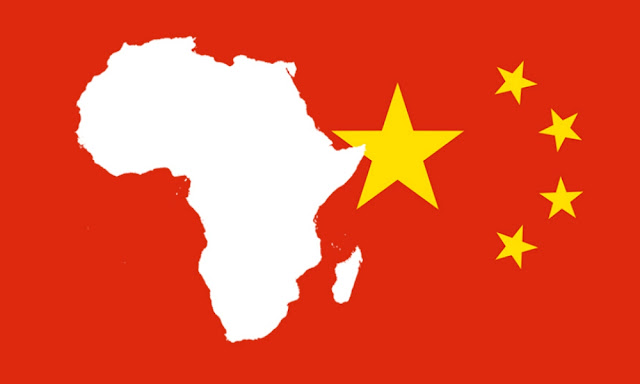
China’s intentions in Africa have been largely misconstrued due to the power imbalance between the Western world and elsewhere......
As Mahadeo and McKinney point out, “the main centers of information production and dissemination are located in the affluent and powerful ‘Western’ parts of the world” (Mahadeo and McKinney 15).
The West dominating global rhetoric is especially problematic because the China-Africa relationship has the potential to be portrayed in a negative light, denying the Western audience of any potential opportunities to learn from the relationship between China and Africa. For example, there seems to be a widely accepted notion that Africans are upset with the Chinese and that China is overstepping their boundaries in terms of their relationship with Africa.
During her term as Secretary of State, Hillary Clinton even went so far as to warn of China’s “new colonialism” (Van Mead). However, this can simply be seen as a tactic for the West to scrutinize other countries before ‘looking in the mirror’ and critiquing our own nation. It is crucial to confront the negative impact the West’s colonialism has had on Africa. Rather than dismiss our own shortcomings and be quick to point fingers at other countries just as Clinton’s comment did, we must recognize the role the West played.
The Chinese are not the only ones who see the potential of investing in Africa’s extractive industries. In fact, “Western companies have been exploiting African resources since the colonial period”. As a result of the West’s actions, African economies and governments have suffered .Simply put, China has been successful where the West has not, and the West finds it easier to criticize China than to take responsibility for our past wrongdoings.
It is crucial to recognize the complex nature of the relationship between China and Africa and how outsiders such as journalists or researchers have the power to control the story being told. To demonstrate this phenomenon: the dominant story currently being told is that Chinese companies operating in Africa are comprised only of Chinese workers, however, there is evidence proving otherwise. For example, research conducted in Ghana and Nigeria found that “in most of the 85 Chinese enterprises studied, a substantial proportion, and often the majority, of the workforce was African” (Mohan and Lampert 104). Granted, this is simply the case in two countries in Africa. But as it stands now, people’s interpretations of China-Africa relations are limited to a single story.
Alternative stories such as the amount of Africans being employed by Chinese companies must be highlighted so that people are aware of the whole story. In addition, there is a notion that China is simply in Africa to extract Africa’s resources and use it for their own good. In fact, the World Bank sent a team to study China’s infrastructure projects in Africa. What they found was that “most of [China’s infrastructure projects] were aimed at security flows of resources back to China. Yet the list of projects they provided . . . do not map out to some kind of master plan for resource extraction” (Brautigam, 280).
It is worth noting that they did not actually visit any African countries, but instead used newspapers and internet sources to conduct their research. Information can easily be misconstrued or biased, depending on who is gathering the information and how they choose to depict it. For this reason, it is crucial for individuals to do their own research and seek to understand the current situation between China and Africa through a lens of cultural relativism rather than eurocentrism.
Journalists, researchers, and authors play a key role in the understanding of the Africa-China relations; they have the ability to either construct or deconstruct dominant narratives.
Based on their privileged position, they dictate what stories are told and can choose what knowledge to communicate and share with the general public, and what information to withhold. Interestingly, Anthropologist Nina Sylvanus’s work in Togo deconstructs the single story of Africa being assumed as vulnerable. In fact, her research demonstrates the complexity of the relationship between Africa and China, and reveals the “inaccuracies in the usual dichotomous narrative and the ways in which the Africa-China relationship has been co-produced” (73). Clearly this is a facet of the China-Africa story which is rarely, if ever, told. The case study of Togo is a prime example of the complexities and nuances inherent in the China-Africa relationship.
Textile trading in Togo was previously a pillar of the economy, but once the Chinese became involved and offered cheaper versions of the product, Togo’s textile traders gradually lost their economic status (71). “What initially may have been perceived as a possibility—Togo’s dependence on China as chief provider of consumer goods and, by extension, Togo’s disconnection from the Global North—rapidly became an economic reality” (76-77). Sylvanus’s work should not be out of the ordinary. We must have more written accounts of the complexities and nuances inherent in the global connection between Africa and China, offering alternative stories to the dominant ones being told.

No comments:
Post a Comment